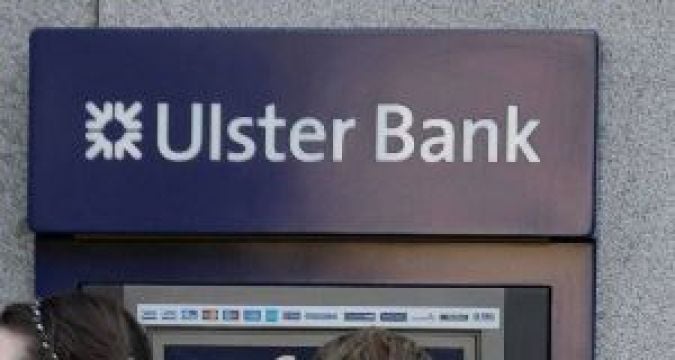Ulster Bank's withdrawal from the Irish market after more than 160 years was confirmed this morning.
This will be a worrying time for the bank's 1.1 million Irish customers.
Current account holders, mortgage holders and those who have a loan with the bank will now be looking at their options
Here, we look at the situation facing Ulster Bank customers with comments and advice from industry experts.
How much time do customers have?
Ulster Bank will leave the Irish market over a number of years, so in short there is no need to rush into the next move.
However, now is the time for customers to start considering their options.
Current account holders
While those who hold a current account with Ulster Bank may be worried, they are in a completely safe position.
Funds will be safe until you choose which bank to switch the money to so there is no need to rush into a decision.
Eoin Clarke, managing director of Switcher.ie, said: “It’s understandable if consumers want to make a quick exit and switch away from Ulster Bank as soon as possible, but there’s no need to panic. If you have a current account you should be able to switch to a new provider easily and any savings held with Ulster Bank will continue to be safe with the bank until you choose to move them.”
Other Irish banks are an option for current account holders.
If current account holders choose not to go with Bank of Ireland, AIB or Permanent TSB, there are other options.
Most credit unions offer current account services while An Post, Revolut and N26 also offer banking options.
When Ulster Bank does eventually close, account holders will be given two months' notice and if an account is still not shut at that point, the money will be sent on in a cheque.
Mortgage holders
Ulster Bank mortgage holders have protection under the Consumer Protection Code regarding the current terms and conditions of their mortgage as per their loan offer.
However, the bank's loans are likely to be purchased by another organisation (AIB is understood to be in advanced talks to purchase Ulster Bank's loan book).
Trevor Grant, chairperson of AIMA (Association of Irish Mortgage Advisors), explained: “One thing to note for borrowers however, is that if a fund buys their home loan, they will not be able to borrow further with that entity and will have to switch provider for additional funds or a new mortgage. However, for many mortgage holders switching to another lender could be a good thing as they may be able to avail of lower rates.
“Any mortgage holder who is not currently on a tracker rate with the bank, should get market-based advice from a broker to assess the full suite of options available to them. They could actually stand to make significant savings by switching provider now.”
Saving accounts
Money in saving accounts is safe and secure. Like those with mortgages and current accounts, it is time for those with savings to start thinking about where they will move their money.
Darragh Cassidy of bonkers.ie says many banks are likely to “run a mile” from any new savings.
There are alternatives to banks for saving though. As previously mentioned, An Post, Revolut and N26 are all options.
Mr Cassidy said: “For customers with savings accounts, with rates at an all-time low, they’re unlikely to be tempted much by what else is on offer.
“Indeed as it’s now costing banks to hold customer deposits, most banks are likely to run a mile from any new savings so it’ll be interesting to see how the sector handles billions of euro all looking for a new home.
“Unfortunately another consequence of Ulster Bank’s exit is that it is likely to herald the arrival of more widespread negative interest rates and I’d encourage savers to think about other options for their savings such as topping up their pension or paying off any existing debt that they have.
“This also may be an opportune time for savers to look at investment options instead, depending on their risk appetite.”
How will Ulster Bank's exit negatively affect things in the long term?
The departure of the country's third biggest bank will lead to a loss in competition, and of course consumer choice.
Interest rates and bank fees are likely to rise.
Mr Cassidy explained: “Today’s announcement from Ulster Bank is a body blow for consumers and competition in the banking sector and will lead to huge upward pressure on interest rates and banking fees in the short to medium term at least.
“Ireland is already under banked compared to other countries of our size so the last thing we needed was for the third biggest player to exit the market and reduce competition even further.”
The SME loans sector will be adversely affected by the withdrawal of Ulster Bank from the market as well.
He added: “Ulster Bank’s exit will be most keenly felt in the SME sector where it provided the only real competition to BOI and AIB.”







